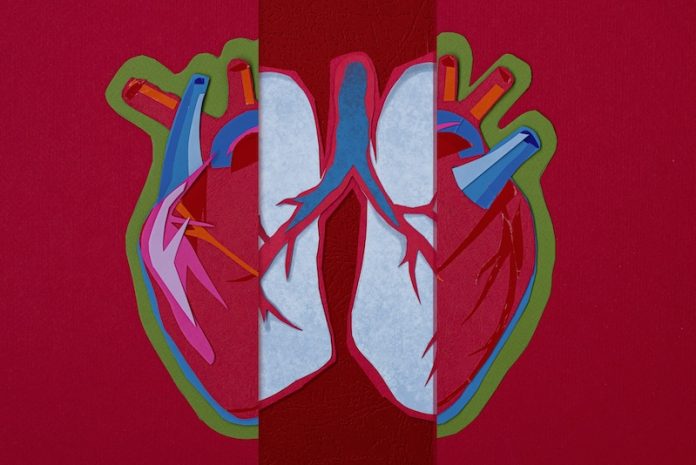
High blood pressure, also known as hypertension, is a common condition that affects millions of people worldwide.
It occurs when the force of the blood against the walls of the arteries is consistently too high.
Over time, high blood pressure can lead to serious health problems, including heart failure. Understanding the relationship between high blood pressure and heart failure is important for managing both conditions and improving overall health. This article explains the risks in simple terms.
Heart failure happens when the heart is unable to pump enough blood to meet the body’s needs. This doesn’t mean that the heart stops working, but rather that it isn’t working as efficiently as it should.
High blood pressure is one of the leading causes of heart failure. When blood pressure is too high, it puts extra strain on the heart and blood vessels. Over time, this can damage the heart and lead to heart failure.
One way high blood pressure can lead to heart failure is by causing the heart muscle to thicken. This condition, known as left ventricular hypertrophy, makes it harder for the heart to pump blood.
A thickened heart muscle also needs more oxygen and nutrients, which can lead to further complications if the heart isn’t able to get enough blood.
Research published in the Journal of the American College of Cardiology found that left ventricular hypertrophy is a significant predictor of heart failure in people with high blood pressure.
Another way high blood pressure contributes to heart failure is by damaging the blood vessels. When the blood vessels are damaged, they can become narrow and stiff, making it harder for blood to flow through them.
This increases the risk of atherosclerosis, a condition where plaque builds up inside the arteries. Atherosclerosis can lead to heart attacks, which weaken the heart and increase the risk of heart failure.
A study in the New England Journal of Medicine highlighted that individuals with high blood pressure are more likely to develop atherosclerosis and, consequently, heart failure.
High blood pressure also increases the risk of coronary artery disease (CAD), a condition where the arteries that supply blood to the heart become narrowed or blocked. CAD can reduce blood flow to the heart muscle, leading to chest pain (angina) or heart attacks.
When the heart doesn’t get enough oxygen-rich blood, it can become weak and damaged, eventually leading to heart failure. According to research in the Circulation journal, CAD is a common cause of heart failure in people with high blood pressure.
Additionally, high blood pressure can lead to heart failure by causing chronic kidney disease. The kidneys play a crucial role in regulating blood pressure, and when they are damaged, it can lead to further increases in blood pressure.
This creates a vicious cycle where high blood pressure damages the kidneys, and damaged kidneys make it harder to control blood pressure. Chronic kidney disease can also lead to fluid buildup in the body, putting extra strain on the heart and increasing the risk of heart failure.
A study in the American Journal of Kidney Diseases found that managing high blood pressure is essential for preventing kidney disease and reducing the risk of heart failure.
To reduce the risk of heart failure, it’s important to manage high blood pressure effectively.
Lifestyle changes such as eating a healthy diet, exercising regularly, maintaining a healthy weight, reducing salt intake, and avoiding excessive alcohol consumption can all help lower blood pressure.
The DASH (Dietary Approaches to Stop Hypertension) diet, which is rich in fruits, vegetables, whole grains, and low-fat dairy products, has been shown to significantly lower blood pressure and reduce the risk of heart disease.
Medications are often necessary to control high blood pressure. These may include diuretics, ACE inhibitors, beta-blockers, and calcium channel blockers.
It’s important to take medications as prescribed and to have regular check-ups with a healthcare provider to monitor blood pressure and adjust treatment as needed.
In addition to managing blood pressure, it’s important to be aware of the signs and symptoms of heart failure. These can include shortness of breath, fatigue, swollen legs and ankles, rapid or irregular heartbeat, and persistent cough or wheezing. If you experience any of these symptoms, it’s important to seek medical attention promptly.
In summary, high blood pressure is a major risk factor for heart failure. By putting extra strain on the heart and blood vessels, high blood pressure can lead to conditions like left ventricular hypertrophy, atherosclerosis, coronary artery disease, and chronic kidney disease, all of which increase the risk of heart failure.
Managing high blood pressure through lifestyle changes and medications is crucial for reducing the risk of heart failure and maintaining overall heart health.
By understanding the relationship between high blood pressure and heart failure, individuals can take proactive steps to protect their heart and improve their quality of life.
If you care about heart failure, please read studies about diabetes drug that could revolutionize heart failure treatment, and this drug can be a low-cost heart failure treatment
For more information about heart health, please see recent studies that exercise in middle age reversed worrisome heart failure, and results showing this drug combo can cut risk of stroke and heart attack by half.
Copyright © 2024 Knowridge Science Report. All rights reserved.



